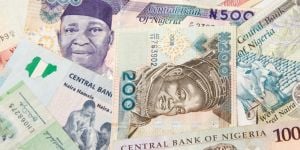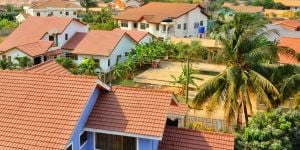
Phone and internet access in Nigeria typically goes through mobile networks, which offer relatively fast and reliable connection. Obtaining a functioning landline for fixed phone and internet is yet another affair but should not prove so big a deal as long as you live in a urban centre, where the telecommunications network is more developed.
Mobile phones in Nigeria
Mobile services have spread much more rapidly than land ones in Nigeria. Cellular voice and text services have experienced a steady rise from the late 1990s, and were joined by mobile internet capabilities from the beginning of the 21st century. To this day, most internet connections are done via mobile networks.
Mobile operators are aplenty in Nigeria, with high competition in the market ensuring customers are able to find reliable, competitive plans.
The leading provider, South Africa's MTN, boasts some 40 million subscribers in Nigeria, followed by Glo mobile, with almost 20 million users, Airtel, with 15 million clients, and finally Etisalat, with 7 million subscribers.
In addition to these operators offering GSM and 3 or 4G technology (meaning that any unlocked foreign phone will work with one of their SIMs), a number of smaller companies operate on niche markets with such systems as WiMAX.
The majority of mobile phones in Nigeria run with pay-as-you-go cards, which can be purchased at any street corner. But all providers also offer interesting data plans. For instance, you can get as much as 100 GB for NGN 85,000, or 2 GB for NGN 2,000.
When picking a phone operator, it is essential to check its geographical coverage. Although all big companies offer good overall coverage, some may perform better than others in your specific area.
Good to know:
Most operators offer mobile money services, allowing for basic transactions such as remittance, bill payments, etc.. Due to the risk of fraud in formal banking transactions, mobile banking is recommended.
Landlines and fixed Internet in Nigeria
Fixed telephone services have existed in Nigeria's metropoles since the 1970s, but the service has - rightly so - gained the reputation of being inadequate and unreliable, as have fixed internet services.
Over the years, the government has worked to improve connectivity, and the establishment of submarine fibre-optic cables and a reshuffling of market conditions have allowed for a definite improvement, with increased speed and lower consumer prices.
Still, to date, internet services remains slower than you may be accustomed to, and you should expect to foot a NGN 12,000 bill for ADSL. Furthermore, in rural areas, getting a landline set up can prove to be a Gordian knot.
Good to know:
Most housing units designed for expats in larger cities come with a line, with connection fees often included in the rent. If not, do not hesitate to seek help with your landlord.
Other network-based services
Nigerian ISPs provide a number of additional services such as access to quality TV and radio news and entertainment channels. Their use however remains dependent on the availability of electricity provision: power in Nigeria, even in Lagos or Abuja, remains unreliable, with power outages being the norm. It is advisable to get your own generator, if possible.
Good to know:
Electricity in Nigeria follows the following standards: 230V, 50 Hz, with round and square three-pin plugs.
Useful links:
List of internet services providers in Nigeria
MTN
Glo Nigeria
Etisalat/9mobile
Airtel
Netcom Africa Limited
Smile Communications
We do our best to provide accurate and up to date information. However, if you have noticed any inaccuracies in this article, please let us know in the comments section below.








